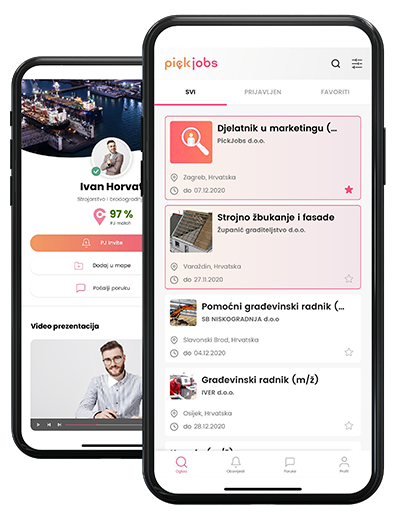PickJobs brings you guidelines for identifying the main characteristics of a good worker.
If you're a small business owner, many of your potential employees may have the skills to fill your open positions — but experience alone doesn't make a good employee. Whether you're hiring for full-time or seasonal positions, it's equally important to get a sense of their personality, whether they'll support your company's values, and whether they have the qualities of a good employee.
Are they reliable? Do they value teamwork and communication? Will they fit your overall team as well as their specific role? Will they be satisfied with their salary? So what makes a good employee? Before you schedule your next interview, learn to look for these six characteristics.

Reliability
Look for employees you can count on to show up on time and complete their tasks. Reliable employees take responsibility for their tasks and meet deadlines. They demonstrate integrity by completing assignments and showing up even when the leader is not looking over their shoulder or praising them. Something as simple as being two minutes late to an interview can be a sign that your candidate is not the most reliable.
Problem solving skills
Hard-working employees are encouraged to solve problems. They review different perspectives and provide useful solutions. Instead of waiting to be told what to do, they are proactive and look for opportunities to contribute. They are curious and ask questions. During the interview process, ask the candidate to describe a specific example of a problem they solved in a previous role, as well as its outcome.
Teamwork
Look for employees who can engage with their co-workers and are able to work with their team to achieve goals. They are flexible, ready for change and can adapt to different roles. They support and respect their colleagues. Engaged employees improve the morale of others and are more likely to deliver even more for both their team and clients. Find out early on whether they want to work independently or in collaboration and why, if they have not previously stated this in their CV.

Conflict resolution
Successful employees strive to resolve conflict rather than avoiding it or placing blame on others. Employees who can resolve conflict communicate clearly, early and often. In their interview, you can ask candidates to describe a scenario where they encountered a conflict in a previous role and how they resolved it. If it sounds like they are placing the blame on a co-worker or customer instead of describing how they found a solution, their conflict resolution skills may be lacking.
Communication skills
Strong communication skills are another characteristic of a good employee. This skill set is especially critical for employees who interact directly with customers, clients, and other stakeholders. A person with excellent communication skills is a good listener and can ask questions with concise, well-constructed answers. During your interaction with a potential employee, look for signs that they are listening to learn rather than waiting their turn to speak. Consider whether they answer the questions in a way that deals with the key topic in a natural storytelling way with the right amount of detail.
Willingness to learn, ask questions
The best employees are constantly looking for new ways to improve and contribute as much as possible to the company. They listen, take feedback seriously and are open-minded when presented with new ideas. They are not afraid to ask questions and ask for help when needed. Before making a job offer, find out how (or if) they stay up-to-date on industry trends and if they're working to sharpen their skills.

 Croatia
Croatia Bosnia and Herzegovina
Bosnia and Herzegovina Serbia
Serbia Crna Gora
Crna Gora North Macedonia
North Macedonia Ukraine
Ukraine Albania
Albania Kosovo
Kosovo Austria
Austria Deutschland
Deutschland Switzerland
Switzerland









